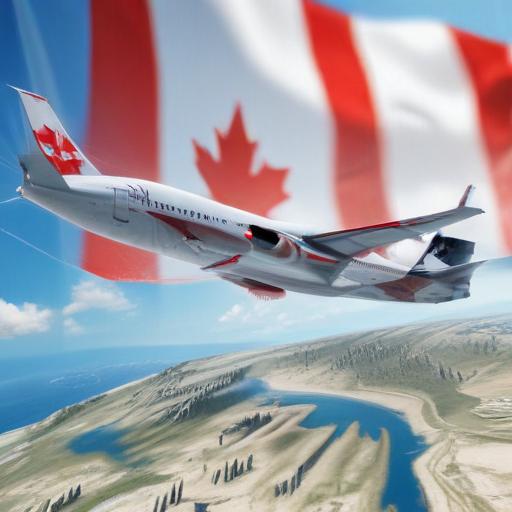The Competition Bureau’s recent recommendation for Canada to permit foreign-owned airlines to operate domestic routes, commonly referred to as “cabotage,” has sparked significant debate about the future of the country’s aviation industry. Although framed as a pro-consumer initiative intended to enhance competition, critics argue that this move may ultimately undermine the domestic sector, jeopardizing Canadian jobs and ceding control over a critical industry without any reciprocal benefits.
The bureau’s proposal suggests that by allowing foreign carriers, particularly American companies due to geographic proximity, to enter the domestic market, competition would be increased. However, this raises concerns since the U.S. restricts foreign carriers from flying within its own borders. The foundation of this argument is that Canada should not blindly open its skies while other nations protect their markets.
According to industry voices, Canada faces unique challenges due to its vast land mass and a relatively sparse population. History has shown that the market is often not robust enough to sustain multiple major airlines; over 15 carriers, including Jetsgo and Lynx, have gone out of business in the past two decades. Critics warn that foreign airlines would likely concentrate on profitable urban routes, while leaving Canadian carriers to manage unprofitable regional and remote services. This could lead to increased prices for consumers and diminished access to air travel, particularly in Northern and remote communities.
The potential job losses extend beyond airline staff, affecting a wide range of professionals—including pilots, mechanics, and support teams—responsible for maintaining robust aviation operations across the country. With foreign carriers having little to no obligation to hire locally, the fear is that they would deplete the experienced Canadian workforce, hampering the industry’s growth.
Amidst these challenges, proponents of a fortified Canadian aviation sector call for the government to focus on enhancing existing infrastructure and policies. Suggestions include modernizing airports, reducing exorbitant airport charges, investing in regional development, and reformulating the air navigation system operated by NAV Canada. By addressing these fundamental issues, the government could help create a healthier aviation market instead of simply inviting external players into a flawed system.
The overarching sentiment insists that while the lure of cheaper fares is appealing, adopting a strategy that prioritizes foreign interests over local growth could lead to long-term detrimental effects. Advocates argue for “smart competition” that nurtures domestic airlines, ensuring that aviation remains a strategically vital asset for Canada’s sovereignty and accessibility.
This development serves as a crucial moment for Canada’s aviation policy, prompting discussions about how best to balance competition with the necessity of preserving and strengthening a domestic industry that supports the nation’s infrastructure and economy.
